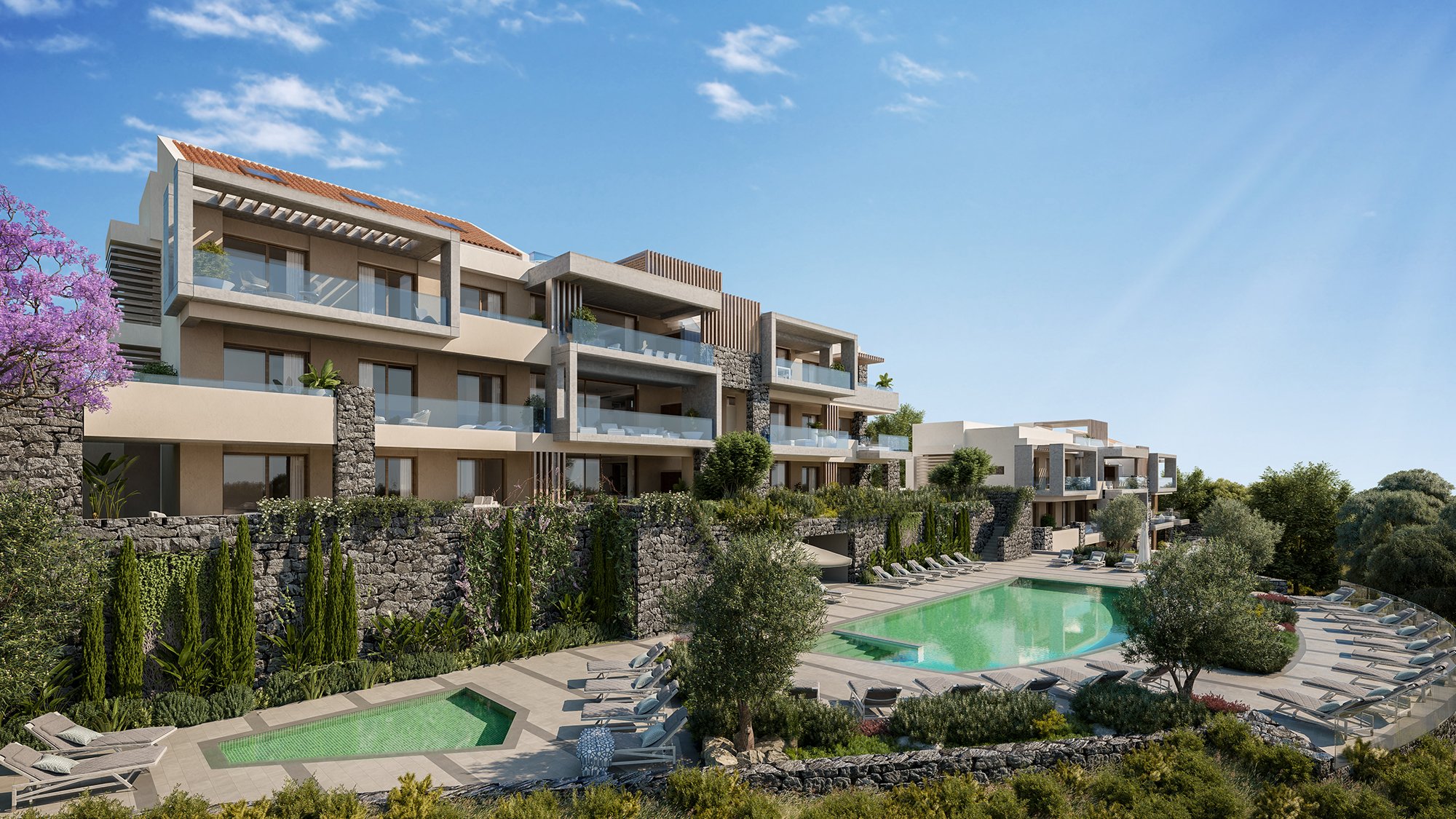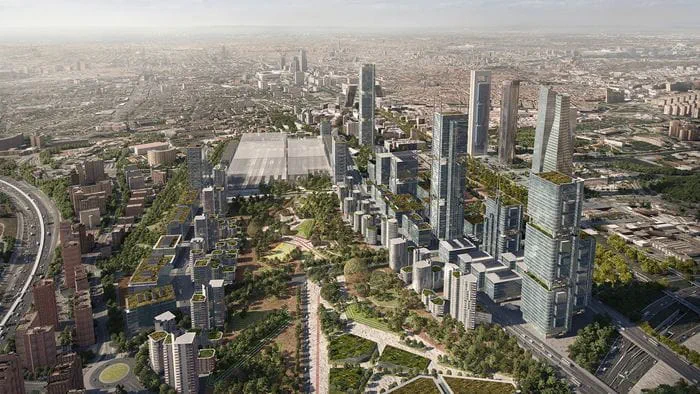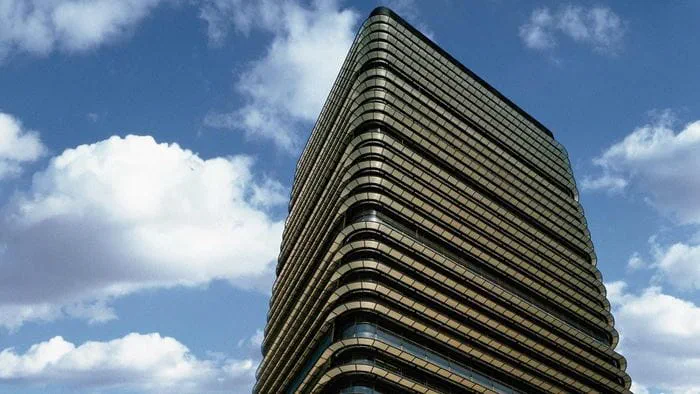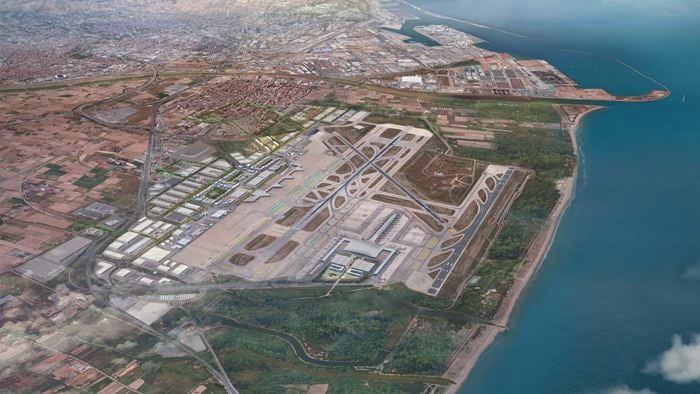Commitment to sustainability and environmental performance is driving a raft of new real estate developments worldwide. Long known for its beautiful coastline and temperate climate, Marbella is also now at the forefront of the sustainable living movement in Spain, with a new upscale green residential complex receiving the country’s first ever large-scale BREEAM certifications.
A few minutes away from Marbella and Puerto Banús, the Real de La Quinta development commandeers views of the Costa del Sol from its privileged location next to the UNESCO protected biosphere reserve of the Sierra de las Nieves.
Responding to its unique natural environment, developer La Quinta aimed to create a sustainable residential resort bringing together a relaxed Mediterranean lifestyle with contemporary smart living features – a vision that has now been validated by global green certification body BREEAM.
Project Summary
600,000m² green areas
<40%water consumption reduction
<15% renewable energy use
The coastal luxury development celebrates its beautiful surrounds with outstanding facilities such as a manmade lake and beach, a range of wellness and sports facilities including a golf course; as well as hotels, restaurants and retail space. There are currently two apartment buildings under development: boasting outstanding design and views of the Mediterranean, both offer a unique take on a nature-inspired lifestyle.
As the strategic sustainability advisor, Arup helped La Quinta develop its green strategy and objectives into a tangible reality. Applying BREEAM principles to large-scale developments is a complex task, requiring a holistic analysis of the masterplan and site infrastructure, as well as a look at the detailed performance of the different buildings. To create a resilient development, our BREEAM consultants designed measures to reduce the overall carbon footprint, such as the use of renewable energy sources and rainwater harvesting. Arup’s sustainability advisory work has won the development a final BREEAM Urbanismo certificate, the first ever masterplan in Spain to receive this seal.
Real de la Quinta urbanization
Spain’s first BREEAM Communities certification
For a growing number of real estate investors and developers, sustainability is a key performance lever, creating long-term value both for portfolio holders as well as for the end user. Global green building standards body BREEAM’s Community seal, known in Spain as BREEAM ES Urbanismo, measures the sustainability of developments at neighbourhood scale and beyond.
As BREEAM advisor, Arup worked with La Quinta throughout the project’s lifecycle, from the initial strategy design, providing regulatory and technical support as well as during the implementation and monitoring.
Our consultants coordinated the certification process and provided Real de la Quinta with technical advice and support throughout the design, implementation and evaluation stages, resulting in a “Very Good” score.
Arup also developed a comprehensive framework to measure and monitor the environmental performance of buildings, including the introduction of specific building bylaws for any further residential developments. All further developments within the resort, including single family villas, will have to comply with BREEAM standards.
Sustainable and resilient design: renewable energy, reuse of rainwater
Sustainable, resilient design: renewable energy, rainwater harvesting
Mindful of the local context, the design incorporates a range of well-considered measures designed to make this a resilient, environmentally-sensitive resort. Our sustainability consultants helped develop a range of strategies, including the sourcing up to 15% of total energy from onsite renewable sources with the planned installation of solar panels or other renewable energy sources.
Water scarcity is another key challenge in the south of Spain. Arup provided technical advice on the construction of the resort’s water infrastructure, introducing a series of measures designed to reduce water consumption by up to 40%, including the installation of rainwater harvesting systems for reuse.
The respectful design seeks to protect local biodiversity. Based on extensive studies, the resort boasts a range of ‘ecological corridors’ to allow indigenous wildlife species to move about, while the landscaping has been designed to combat the high temperatures registered during the peak summer months.
To mitigate the heat island effect, public spaces and pedestrian paths have been shaded with vegetation, and the green areas feature a careful selection of native plant species adapted to this climate.
 ;
;




